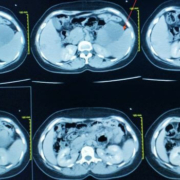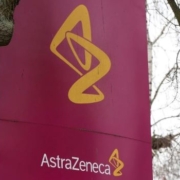ImmunityBio shared interim results from the company’s ongoing metastatic pancreatic cancer trial, demonstrating overall survival that is double the historical rate.
AstraZeneca reported what the company called “unprecedented survival,” in the HIMALAYA Phase III trial using a single priming dose of tremelimumab added to the anti-PD-L1 checkpoint inhibitor Imfinzi (durvalumab) compared to Bayer’s Nexavar (sorafenib) as a first-line treatment for unresectable hepatocellular carcinoma (HCC) patients who had not received previous systemic therapy and as a result, were not eligible for localized treatment.
Radiomics is a field of research in which image analysis is used to extract large number of quantitative features from medical images, such as MR, CT, and PET scans. While there are many potential applications of radiomics across the healthcare spectrum, oncology continues to be one of the main areas of study.
A little more than a month after Bay Area-based Freenome snagged $300 million in a Series D financing round, the company scored an additional $290 million from an investment made by Swiss pharma giant Roche.
French drugmaker Sanofi SA is partnering with British AI firm Exscientia Plc to develop up to 15 drug candidates across oncology and immunology, in a deal worth up to $5.2 billion in milestone payments, the two companies said on January 7.
BioSpace reviewed a busy January 5th for collaboration announcements in the life sciences world.
10 Biggest Novel Drug Approvals of 2021
Alzheimer's Disease, BNT162b2 (Pfizer and BioNTech), COVID-19 Vaccines, Cytomegalovirus Infections, Episodic Migraine, FDA, Lupus nephritis, New Drug Approvals, Non-Hodgkin Lymphoma, Non-Small Cell Lung Cancer (NSCLC), Pfizer, Sickle Cell Disease, Systemic Sclerosis-Associated Interstitial Lung Disease (SSc-ILD), Therapeutics, Weight managementBioSpace looks at the 10 biggest drug approvals of 2021, headlined by Biogen’s Aduhelm (aducanumab) for Alzheimer’s disease and Pfizer and BioNTech’s COVID-19 vaccine Comirnaty.
2021 was an important year for the life sciences industry. From the continuing fight against COVID-19 to new companies emerging in exciting therapeutic areas to the people who mattered most, BioSpace looks at some of the biggest successes, most dramatic flops – and a few that fall somewhere in between.
This paper looks at the perceived barriers to the adoption of wearables—and the major benefits that await sponsors that overcome them.
Research Roundup: ADHD Drug Appears to Delay Alzheimer’s Symptoms and More
ADHD, Alzheimer’s disease, Brain, Clinical Trials, COVID-19 booster shots, Dementia, Exercise, HIV, Medical Journals, Memory, mRNA-1273/Moderna COVID-19 Vaccine (Moderna), Omicron (B.1.1.529) (South Africa), R&D, Therapeutics, Tuberculosis, TumorsResearchers at Emory investigated the use of an FDA-approved ADHD medication on patients with mild Alzheimer’s symptoms and found it appeared to reduce levels of tau.









